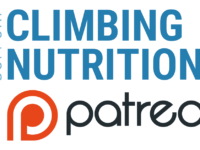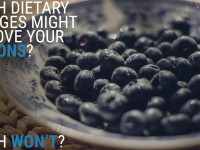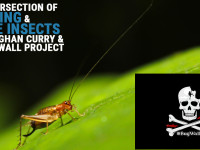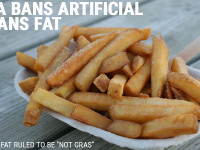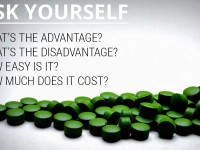In the future, I’m going to try to address news items like this on the Climbing Nutrition Facebook page as they happen in real time! But I obviously didn’t manage to do that last week so I’m going to write a post about it today instead because it’s still worth addressing. The bit of nutrition news I am referring to was the reclassification of processed meats to a group 1 carcinogen—so let’s dive in.
The IARC Carcinogen Classification System
When the WHO’s International Agency for Research on Cancer (the IARC) put out a press release last week stating that processed meats were being classified as a group 1 carcinogen—meaning they definitely cause cancer—it caused a flurry of excitement and agitation, with headlines comparing eating bacon to smoking and countless social media post authors proposing they’d rather die before giving up the crispy meat. Lost (mostly) in this snowstorm of sensationalism was a rational dissection of what exactly this reclassification really meant.
Of course, that’s because the truth is far less newsworthy; in fact, it’s rather boring. At any rate, the first thing you need to understand about the IARC’s classification system is that does not measure the acute risk of developing cancer upon exposure to a known or suspected carcinogen, but rather the likelihood that something can cause cancer at all.
Seems like a trifling distinction, but it’s not. Loads of things cause cancer—including stuff we routinely expose ourselves to, like UV radiation and alcohol—but the relative increase in risk is quite small for normal amounts of exposure. Basically, if something can cause cancer, it’s a group 1 carcinogen, but being exposed to a group 1 carcinogen doesn’t mean you’ll get cancer.
Of course, there are a ton of really scary things that also cause cancer, and when processed meats shares a list with those items it’s easy to misconstrue your risk. But the only thing the list actually tells us is that bacon, ionizing radiation, acid mists, tobacco, sunlight, and asbestos all have the ability to cause cancer. Some of the items on the list you should probably avoid at all costs; some, you can make a calculated decision about your exposure and probably be fine. Bacon and processed meats in general are in that calculated risk pile—potentially harmful, but not quite like eating a tube of cadmium red paint.
Relative vs. Absolute Risk
Most sensational news stories make the same mistake when it comes to stating the risk associated with an activity. Usually it can be blamed at least partially on the journalist, who may not themselves understand how relative risk works—or who may understand exactly how it works, and knows that relative risk always sounds scarier. Disappointingly, this time it was in the actual press release from the IARC.
In the press release, the IARC cited experts who concluded that each 50 gram (about 1.75 ounces) portion of processed meat eaten daily increased the overall risk of colorectal cancer by 18%. 18% sounds like a big increase, but it isn’t particularly worrying because the incidence of colorectal cancer is relatively low—there are only an estimated 57.2 new cases for every 100,000 men each year, and 42.5 new cases for every 100,000 women.
Now, if we were to convert the relative risk of developing colorectal cancer in one year into the absolute risk, we would be less impressed, because 18% of 57.2 is 10.3—which means that in a given year, if 100,000 men ate 50 grams of bacon every day, then we might expect 10 more of them to develop colorectal cancer to bring the new total to 67.5 cases per 100,000 men. In the case of women, who are at slightly less risk, we would expect about 7.7 more cases for a new total of 50.2 cases per 100,000 women. Thus, 50 grams of bacon increases the absolute yearly risk of colorectal cancer by about 0.01%, which is a very unscary figure.
Granted, looking at at a disease that progresses slowly and silently like cancer on a yearly basis isn’t the best way to measure risk; it’s better to look at the lifetime risk, because the odds of developing cancer precisely this year is much lower than the odds of developing cancer any year. But even when looked at this way, the change in absolute risk is still rather small—the difference between a 4.5% chance and a 5.3% chance. This would also mean eating roughly 50 grams of processed meat daily for your entire life, or about 3/4 a pound of bacon and sausages every week, and it doesn’t consider any other positive factors that decrease your risk, such as your other eating habits and lifestyle.
Of course, if you eat a ton of processed meat every week, your risk is going to increase. If you’re also more prone to colorectal cancer due to genetics, lifestyle, or other dietary factors, then the risk that bacon poses to your health could become meaningful. If you’re like most climbers, though, and you exercise frequently, eat vegetables and other plant-based foods routinely, and rarely gorge yourself on processed meats, then the occasional (or even frequent) BLT or sausage hash isn’t going to sentence you to colorectal cancer.
Processed Meats: Not Healthy, but Not Terribly Dangerous Either
Your health isn’t based on singular decisions, but on general habits. Most climbers have above average diets from the standpoint of health and chronic disease prevention. All climbers exercise, and many do so obsessively because climbing is wicked fun.
I don’t have figures on the lifetime risk of colorectal cancer for the average climber, but I would suspect it’s far lower than most. Eating bacon, sausages, or any other type of processed meat isn’t going to push your risk over the edge. Rather, if you got a group of 200 climbers together and made a strange pact to eat more processed meats, then we might expect a grand total of one extra climber to develop colorectal cancer.
Don’t fear processed meat—it’s not like cigarettes or nuclear radiation. Yes, it can cause cancer, but it’s still a very mild carcinogen. Eat it if you wish, abstain if you don’t, and leave it at that.

